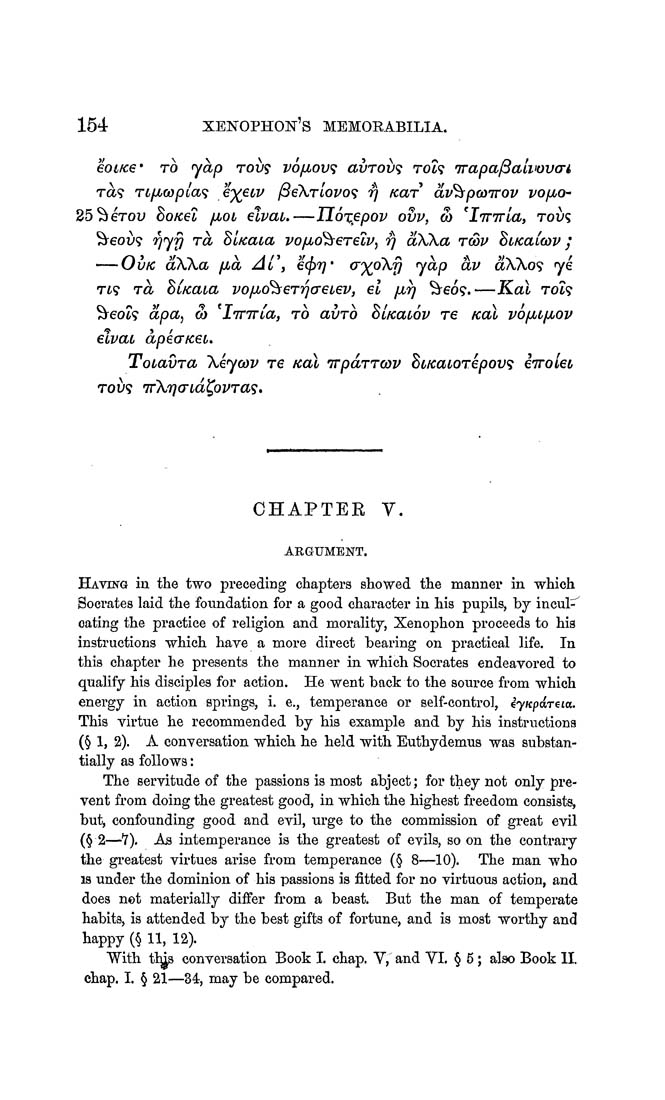154 xenophon's MEMOEABILIA.
eotKe* Tb ydp tovs vbptovs avTovs toIs Trapa^alvovai
Tds Ttptcopias exetv ^cXtIovos fj KaT dvGpcoTTOv vopto-
25 ^€Tou SoKel ptot elvat.—Ub%epov odv, & 'iTTirla, tovs
Geovs yy fj Td SUata voptoGeTelv, fj dXXa t&v StKaicov;
— Ovk dXXa ptd Ai\ ecpy* axoXfj ydp dv dXXos yi
Tts Td SiKata voptoGeTijaetev, el pty Gebs.—Kal toIs
Geols dpa, ft) ^iTTTria, Tb avTb SUatov Te Kal vbpttptov
elvat dpiaKet,
Totama Xiycov Te Kal TvpdTTcov StKatoTipovs iTTolet
TOVS TrXyatd^ovTas*
CHAPTER V.
ARGUMENT.
Having in the two preceding chapters showed the manner in which
Socrates laid the foundation for a good character in his pupils, by incul^
eating the practice of religion and morality, Xenophon proceeds to his
instructions which have a more direct bearing on practical life. In
this chapter he presents the manner in which Socrates endeavored to
qualify his disciples for action. He went back to the source from which
energy in action springs, i. e., temperance or self-control, iyKpdreia.
This virtue he recommended by his example and by his instructions
(§ 1, 2). A conversation which he held with Euthydemus was substan¬
tially as follows:
The servitude of the passions is most abject; for they not only pre¬
vent from doing the greatest good, in which the highest freedom consists,
but, confounding good and evil, urge to the commission of great evil
(§2—7). As intemperance is the greatest of evils, so on the contrary
the greatest virtues arise from temperance (§ 8—10). The man who
IS under the dominion of his passions is fitted for no virtuous action, and
does not materially differ from a beast. But the man of temperate
habits, is attended by the best gifts of fortune, and is most worthy and
happy (§ 11, 12).
"With tl^ conversation Book I. chap. V,^and VI. § 5; also Book II.
chap. I. § 21—34, may be compared.
|








